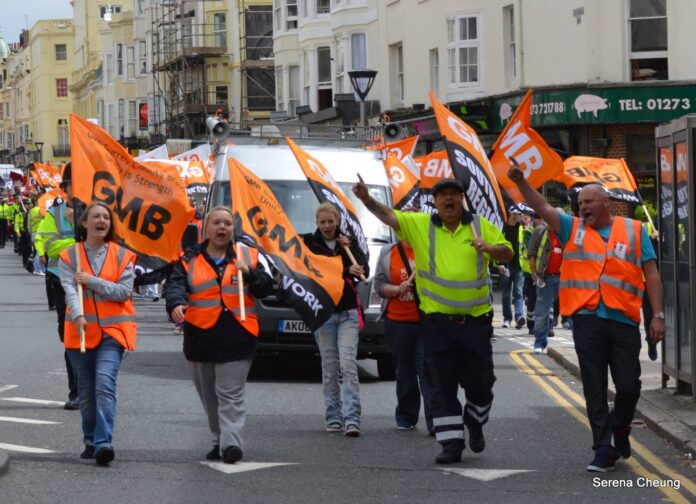Alasdair Cook, Dorset Socialist Party
The Wiltshire refuse strike that began in Salisbury on 7 March started over attacks on pay and conditions. Then came the attacks on the strikers themselves. So far, since going into discussions with Hills Municipal Collections, only a 7% pay rise over two years has been offered, which accounts for just a 3.5% increase per year – way below the rate of inflation.
On the picket line there have been repeated and frequent incidences of strikers being hit by lorry drivers. In Salisbury, two bin workers were hit and had to receive treatment at the local hospital. This according to the GMB union rep, was believed to be ordered by management. Since then, the employee responsible has been suspended. Similar incidences have been reported at other disputes with Hills in Trowbridge and Calne.
Talking to the rep, the turnout for the strike has been good, with around 70% of the workforce picketing. The remaining 30% has been made up of predominantly agency workers on higher salaries, which has made picketing more difficult. According to the rep “where money’s tight with fuel and gas, we are effectively asking them to choose between supporting the strike or feeding their children.”
In just a couple of months the site had gone from no one unionised, to around 70% of the workforce on strike with GMB. This includes the yard rep, who was new to the struggle and was undergoing training with GMB. They spoke of the absurdity of having workers on multiple contracts doing the same job.
At the Salisbury site this means Wiltshire council loaders and drivers earning a lot less than Hills’ employees for the doing same job, while also not receiving the two bonuses a year.
Despite the predictable opposition from the Tory-run local council and their “major safety concerns”, and the hostility of Hills Municipal Collections, the morale of the strikers has been good, and they appear to be determined.
The striking is planned to go on till at least 21 March, but could well go on for longer. GMB is also planning further action in up to eight locations in the region, predominantly relating to refuse contacts, as workers fight back against the cost-of-living crisis.








